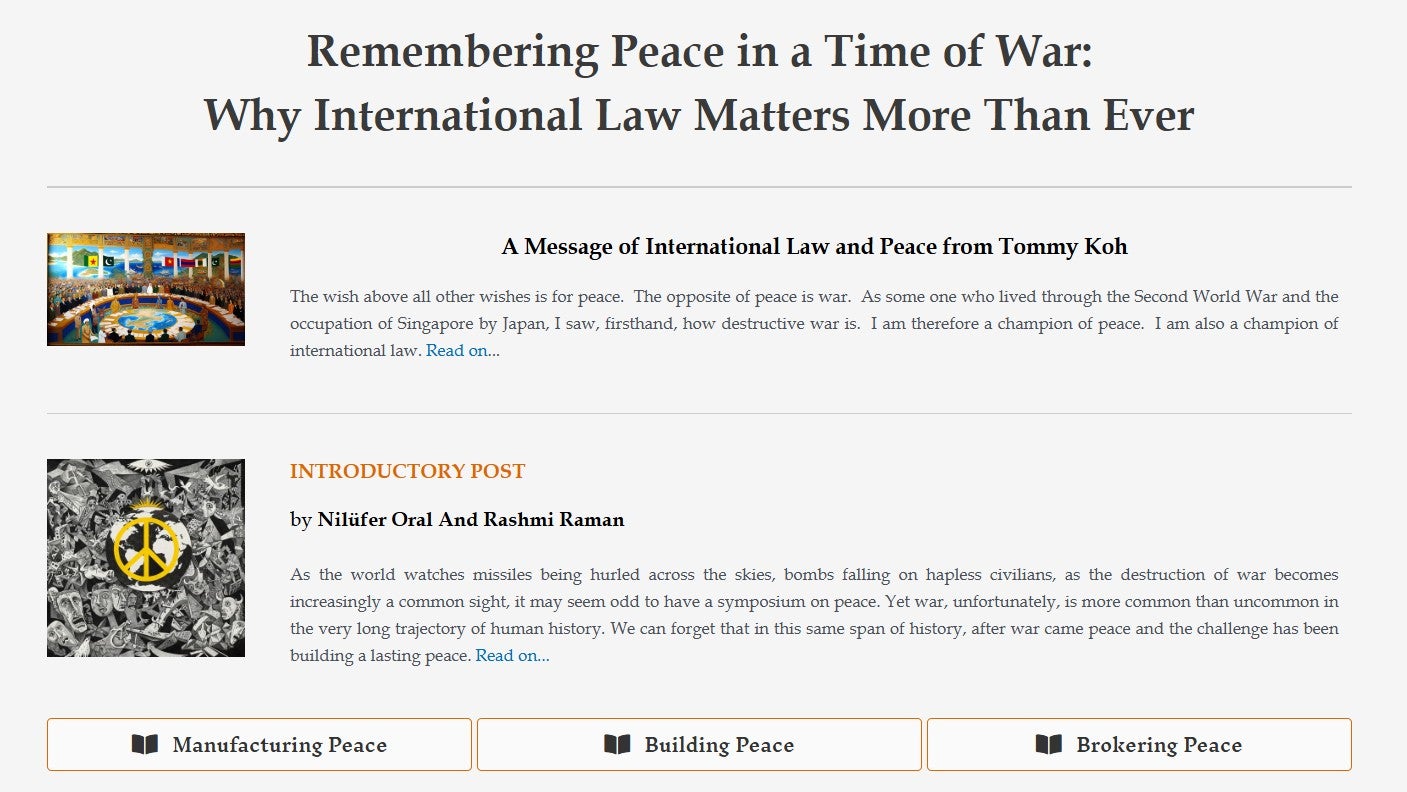CIL Dialogues
An International Law Blog
CIL Dialogues is the re-imagination of the existing blog of the Centre for International Law (CIL) of the National University of Singapore (NUS). The editorial team’s approach to CIL Dialogues reflects two shared commitments. First, we share a generalist perspective of international law, viewed as raising shared foundational questions across specialised fields, institutions, regions, and inquiries. Secondly, we are appreciative that CIL Dialogues is not based in (the virtual space of), or associated with institutions in the ‘Western European and Others States Group’. The blog will therefore be interested in international law broadly conceived and seek to be attentive to regional perspectives to questions of universal and general relevance, particularly relating to Asia Pacific, as well as the views and voices that may have been traditionally excluded. More...
Featured Symposium ...


